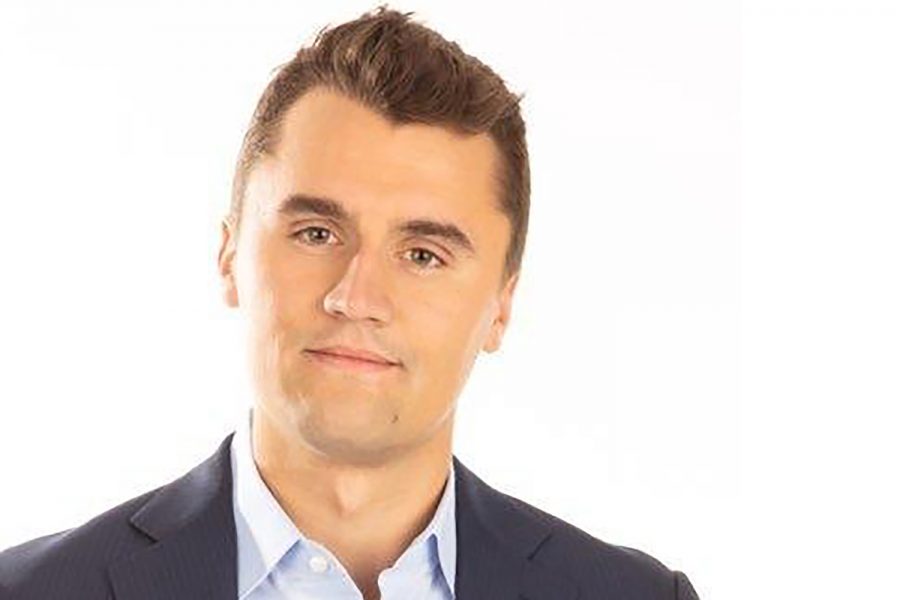Turning Point USA founder Charlie Kirk to visit UI in October
Turning Point USA Founder Charlie Kirk, who stoked controversy on campus following UI student Mollie Tibbetts’ death, is slated to visit Oct. 23 as part of a national tour of college campuses.
Charlie Kirk
September 10, 2019
The University of Iowa chapter of national conservative college-student organization Turning Point USA plans to bring the group’s founder — who has a contentious history with the UI’s former executive board — to campus next month.
Charlie Kirk, the organization’s executive director, is slated to visit the UI at 7 p.m. Oct. 23 in the IMU as part of his nationwide “Culture War” tour of U.S. college campuses this fall. He will visit the University of New Hampshire, Ohio State University, and University of Nevada – Reno, among other institutions.
Kirk wrote in his announcement of the tour on Twitter that President Trump’s son Donald Trump Jr. will join him.
I’m excited to announce my fall tour “Culture War” on college campuses across America!
Join @DonaldJTrumpJr and me on the front lines of the intellectual battle for freedom
The left thinks they have a monopoly on colleges
Prove them wrong. Fight back. https://t.co/papZGQPT6Q pic.twitter.com/kb9X8FP9ob
— Charlie Kirk (@charliekirk11) September 6, 2019
UI media-relations director Anne Bassett said in an email to The Daily Iowan that the UI chapter of Turning Point USA is in the process of completing an Event Information Form “for an event on October 23.”
According to IMU policies for student organizations, “the form will be sent to the student planning the event after a reservation is already in place with the IMU Event Services Office. The student is responsible for obtaining the appropriate signatures and returning the form to the IMU Event Services Office for final review. Completed forms, accompanied by any necessary payments, must be returned before a reservation will be confirmed.”
The UI chapter has been under new leadership since its former executive-board members resigned Aug. 24, 2018, following a dispute over an invitation for the national organization’s leaders to visit campus after the death of UI student Mollie Tibbetts.
The former board members wrote in a now-deleted statement posted on Twitter that a field director insisted Kirk and former Turning Point USA communications director Candace Owens visit the UI to host an immigration event. The man accused of slaying Tibbetts, Cristhian Bahena Rivera, is an undocumented immigrant and Mexican national.
“We find it in poor taste to exploit the death of a Hawkeye to suit a political agenda,” the former board members wrote to decline the invitation. “… Members of this chapter would like time to grieve and mourn the death of their classmate. We are all shocked, hurting, and in need of more respect than what was given to us by Turning Point USA.”
RELATED: After Tibbetts’ death, politicians call for immigration action
Authorities’ announcement of Bahena Rivera’s immigration status after Tibbetts’ death prompted calls from politicians — including Republicans President Trump, Iowa Gov. Kim Reynolds, and Iowa’s U.S. Sens. Chuck Grassley and Joni Ernst — to tighten laws to control the influx of immigrants in particular at the U.S.-Mexico border.
Kirk himself has weighed in on the matter. In an Aug. 12 tweet, he called for justice and wrote, “Sick: The illegal alien who [allegedly] murdered Mollie Tibbetts in Iowa is now claiming that his constitutional rights were violated.” Kirk alleged that Bahena Rivera “violated an American citizen’s constitutional rights when he brutally killed her and hid her body in a cornfield.”
A free-speech bill signed into law in Iowa in March protects speeches by invited speakers and Bassett said it requires the university to allow invited guest speakers.
RELATED: Campus free-speech bill heads to Iowa governor’s desk
The UI’s policies regulating displays and rallies are not based on the display’s content, Bassett said, and “the university may not deny an application for any reason that would deny constitutionally protected rights of freedom of speech and assembly.”
“The University of Iowa values the First Amendment and encourages the respectful exchange of ideas on campus,” Bassett wrote. “The university is also strongly committed to providing an equitable and inclusive campus. Some of the views expressed through free speech can be offensive to members of our community. We encourage students, faculty, and staff to value diversity, engage in civil discourse, and be respectful of everyone that uses our shared space.”















